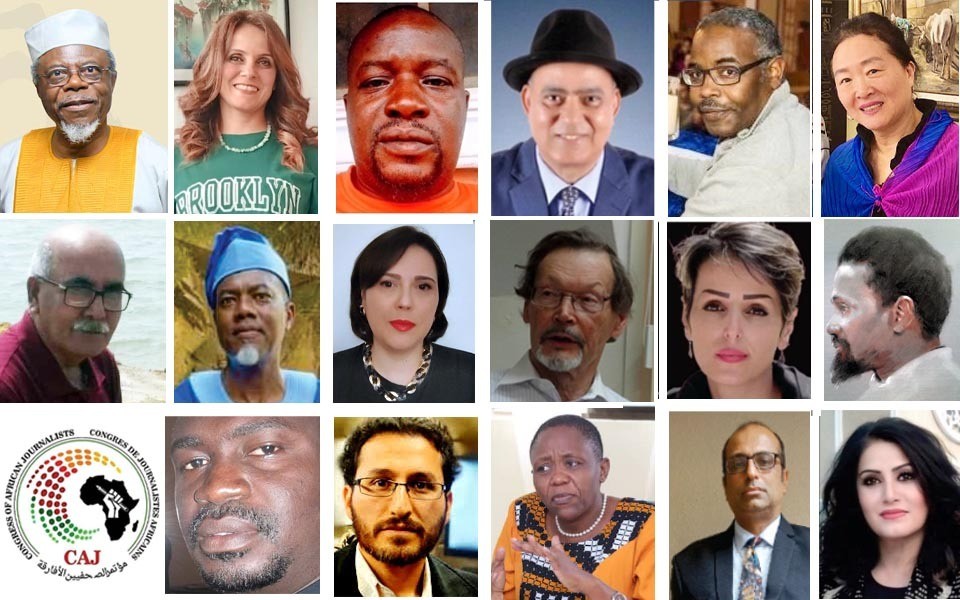CAJ International Magazine, published by the Congress of African Journalists, launched from the heart of Africa, Nigeria, to take its readers on a tour across the continents of the world.
It begins with the cover story; Venezuelan President Nicolás Maduro has announced the Great World Antifascist Festival "FOR A NEW WORLD", which will take place on January 8-10, 2025, in Caracas.
This announcement was made during the closing session of the World Congress of Antifascist Youth and Students, emphasizing Venezuela's growing role as a center for global antifascist movements. Maduro highlighted that the event will coincide with the swearing-in of the new president-elect, further symbolizing Venezuela's commitment to unity and resistance against fascism. The festival will gather international delegates, activists, and cultural representatives to strategize and collaborate on global antifascist initiatives. This follows a series of high-profile cultural and political events in Venezuela under Maduro's leadership, including the Viva Venezuela World Festival and the World Poetry Festival. These events have celebrated Venezuela's cultural richness while promoting social and political causes. Through such initiatives, Maduro continues to position Venezuela as both a hub for cultural expression and a platform for international solidarity against extremism.
From Latin America to Asia, to read on Alghoza – a common musical Heritage instrument of Sindh and Egypt! Earlier this year, Mr Nasir Aijaz received a copy of “A Study on Sindhi Folk Music” by Mr. Rajesh Kumar Parasramani, a Sindhi Sarangi player from Chhattisgarh, India.

Despite strained relations between India and Pakistan, the book eventually reached him through a kind intermediary. Rajesh, a visually impaired musician with roots in Sindh, Pakistan, has a deep passion for folk music and works at the Reserve Bank of India. While reading his book, a particular note on the Alghoza caught his attention. It highlighted that many artists believe this traditional instrument, common to Sindh and Punjab, may have originated in Egypt, underscoring its shared cultural heritage.
From Europe, we will make three stops: Victor Klykov will tell us, in a series of articles, about Alexander Pushkin's African roots and his memories living in African countries, while Ana Stelia introduces us to the Serbian translation of Ashraf Aboul-Yazid's book Naguib Mahfouz: The Narrator and the Artist. Finally, CAJ puvlishes an interview conducted by Selnich Vivas Hurtado, University of Antioquia (Colombia) with the exiled Malian poet and writer, Ismaël Diadié Haïdaras, first published in Spanish in Linguistics and Literature Magazine, and Haïdaras says “There is no world other than the one that gives us the language we speak.”
The iconic African historian Professor Toyin Falola talks to us about one of the tenets of a democratic society, which is the assurance of freedom of speech and expression for its citizens: “This includes the right to speak and criticise in order to ensure that society does not derail in upholding its values. The test of democracy is not at the point of comfortable tolerance of these rights but in allowing everyone to, even at the greatest inconvenience, manifest the utmost freedom granted to them by law and nature.
Egyptian TV director and writer Fatima Al Zahraa Hasan reminds us with Salma Hayek's love letter to her homeland; Lebanon, exhibited in her film “The Prophet” based on the book by Kahlil Gibran. The magazine also showcases the creative pens of LEE YEON-SIL , Cherry (Korea), Nuha Swaid (Syria), Dela Ahiawor (Ghana), Reno Omokri (Nigeria), Hassan Humeida (Sudan/Germany), Dr. Elmaya Cabbarova (Azerbaijan), Mutayoba Arbogast (Tanzania), Oseni Yusuf Salami ( Nigeria) and Editor-in-Chief Michael Adeboboye.
Comments